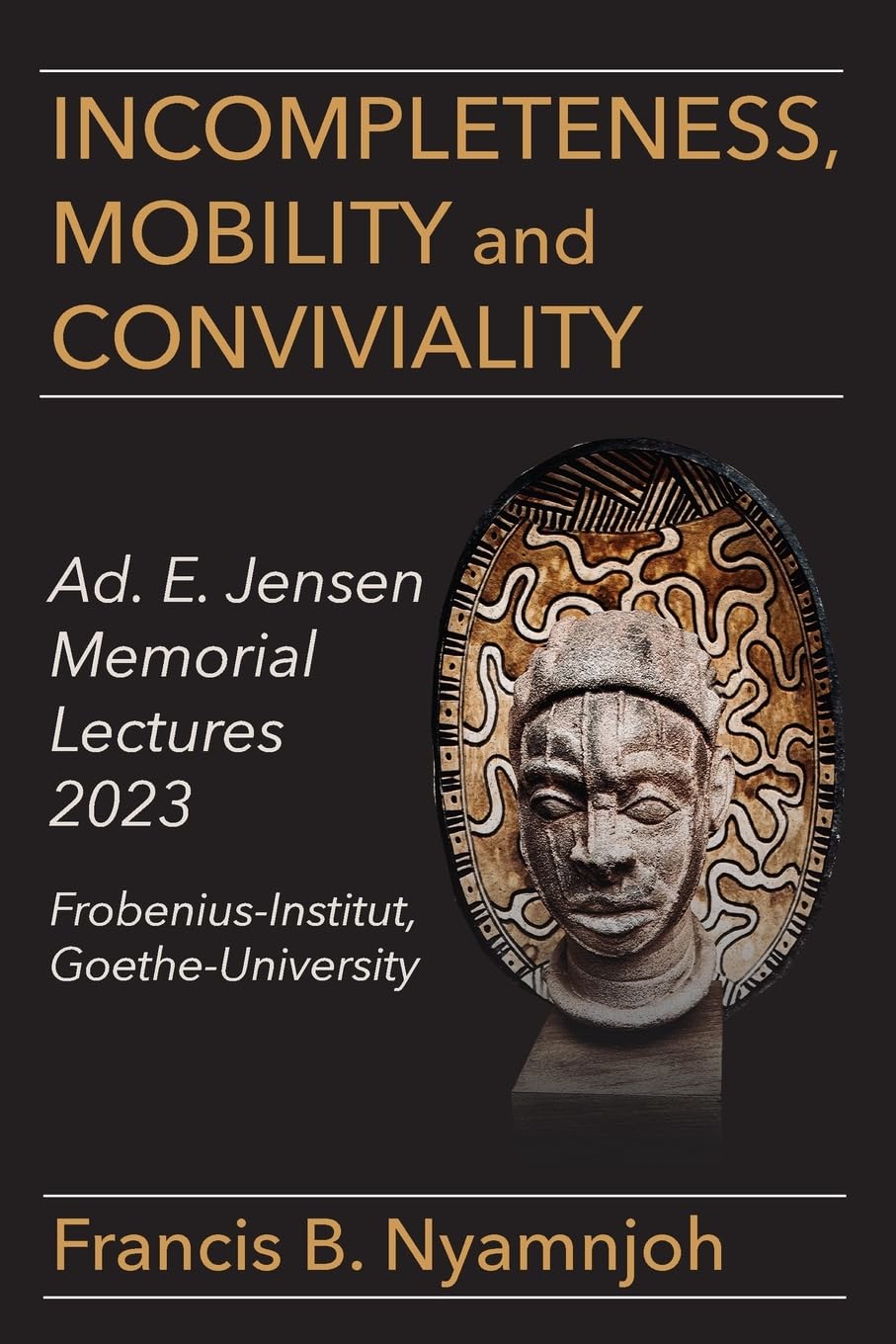 The lecture given by Prof Dr Francis B. Nyamnjoh held at the Frobenius Institute in June 2023 with the title "Incompleteness, mobility and conviviality" is now available as a book.
The lecture given by Prof Dr Francis B. Nyamnjoh held at the Frobenius Institute in June 2023 with the title "Incompleteness, mobility and conviviality" is now available as a book.
"The crucial anthropological question of relationality and othering is at the heart of this original and enlightening book. Nyamnjoh cautions the missionaries of decoloniality against the risk of substituting one illusion of completeness with another. For him, incompleteness is the basis of any healthy exchange. He therefore recommends embracing the universality of incompleteness in motion and taking seriously an ancestral tradition of self-extension through creative imagination in this anxious age of artificial intelligence. Forcefully argued and abundantly substantiated - with finesse and laughter that run through it - this book will be a milestone by making us rediscover the demands and the magic of fieldwork." Prof. Dr. Mamadou Diawara, Goethe University, Frankfurt/Main Frobenius-Institut, Frankfurt/Main Point Sud, Bamako, Mali
Central to the Jensen Memorial Lectures 2023 is an invitation to take incompleteness seriously in how we imagine, relate to and seek to understand a world in perpetual motion. Despite our instinct for and obsession with completeness, we are constantly reminded that the sooner one recognises and provides for incompleteness and the conviviality it inspires as the normal way of being, the better we are for it. Fluidity, compositeness and the capacity to be present in multiple places and forms simultaneously in whole or in fragments are core characteristics of reality and ontology of incompleteness. How would we frame our curiosities and conversations about processes, relationships and phenomena with an understanding of the universality of incompleteness and mobility? West and Central Africa, for example, are regions where it is commonplace to embrace and celebrate incompleteness in nature, the suprasensory, human beings, human actions, human inventions and human achievements. The lectures indicate how we could draw inspiration in this regard to inform current clamours for decolonisation and the growing ambivalence about rapid advances in digital technologies (artificial intelligence (AI) in particular), as well as with twenty-first century concerns about migrants and strangers knocking at the doors of opportunities we feel more entitled to as bona fide citizens and insiders. The lectures draw on the writings of Amos Tutuola as well as from popular ideas of personhood and agency in Africa, to make a case for sidestepped and silenced traditions of knowledge. They highlight Africa's possibilities, prospects and emergent capacities for being and becoming in tune with the continent's creativity and imagination. They speak to the nimble-footed flexible-minded frontier African at the crossroads and junctions of myriad encounters, facilitating creative conversations and challenging regressive logics of exclusionary claims and articulation of identities and achievements. The traditions of knowledge discussed in these lectures do not only speak to Africans, but to the world, as the philosophies explored have universal application.





